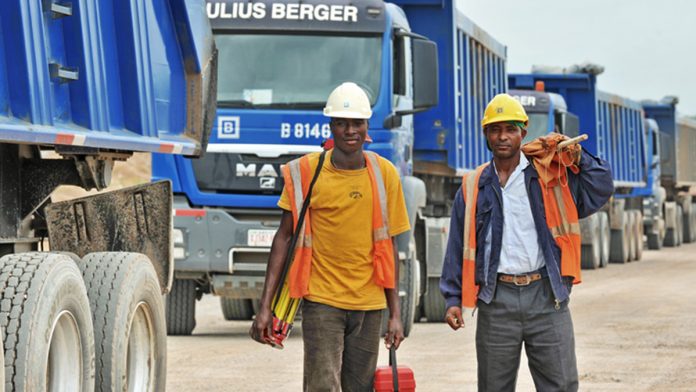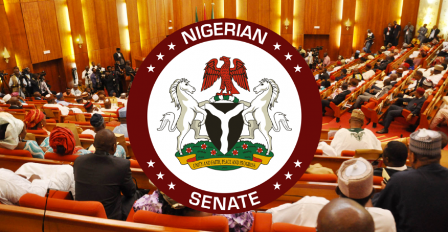Contractors say it’s now time to complete Lagos-Ibadan Express Road, as Buhari mobilizes them

Recently, Wolfgang Goetsch, Managing Director, Julius Berger Construction Company, disclosed at its 48th Annual General Meeting (AGM) in Ibadan that with the signing of the 2018 budget by President Muhammadu Buhari, the company had been remobilised to resume work on Lagos-Ibadan Express road after months of removing its workers from the site.
This confirms earlier claim in April of this year by Mr Babatunde Raji Fashola(SAN), Nigeria’s Minister of Works, Housing and Power that government would expend additional N64.1 billion in variation to the initial N70 billion agreed for repair of the Lagos-Sagamu segment of the road.

The Works, Housing and Power Minister had announced in April that the federal government had approved release of another N64.1 billion to Julius Berger for continuation of the repair Section 1 of the Lagos-Sagamu Interchange, which commenced in 2013.
The new efforts by government to resume work on the Lagos-Ibadan Express road are commendable. But it must be restated that the project has dragged for too long and requires more concise action to end the regime of wastes and pains that Nigerians have been experiencing on the road. Indeed,Goetsch’s disclosure gave a subtle indication that the new mobilisation will not deliver the total work on the repair. Goetsch noted : “When the huge payment is done, we can deliver more. But it also falls on appeal to the government that we need money ahead of time.” The nagging question therefore, remains; when will the repair of Lagos-Ibadan Express road be completed?
Former President Goodluck Jonathan administration had split the repair of the road to two sections between Julius Berger and Reynolds Construction Company (RCC), which was awarded the Section 2 of the Lagos-Sagamu Interchange. The initial cost as approved then was N167 billion and the road was scheduled to be delivered in 48 months. If things had gone according to plan, the repair of Lagos-Ibadan Express road, which has lingered for almost 18 years,would have been sweet story today.
Recall that before the award of the contract to Julius Berger and RCC, the Jonathan government had entered into a concession agreement with Messrs Bi-Courtney in 2009 to develop the section between Ojota old plaza in Lagos and old toll plaza in Ibadan, a distance of approximately 105 kilometres, under a Public Private Partnership arrangement. But four years later,no real progress was recorded leading to cancellation of the deal, while the road users continued to wallow in hardship and constantly at risk of accident on the road.
The termination of the concession agreement led to serious litigation between the construction company and federal government. The case was, however, determined in favour of the government in a Federal High Court on April 25, 2016.
The concerns over the non-completion on repair of Lagos-Ibadan Express road are deep among Nigerians. These concerns are germane given the heavy financial and human costs the road repair has inflicted on the country over the past years.Indeed the road has acquired the notorious reputation of being a death trap and only last week,several lives were lost with over 50 vehicles burnt beyond redemption in a an accident involving a loaded petrol tanker on Otedola Bridge at the Lagos end of the road.
The 127.6-kilometre expressway traverses three South-West states of Lagos, Ogun and Oyo, commencing from the Ojota interchange in Lagos state through Shagamu junction, Ogere both in Ogun state and terminates at Ojoo in Ibadan, Oyo state. It is also a major artery that connects Lagos to other states of the federation. Indeed,it is a major access to the Lagos market, in particular the country’s sea ports at Apapa.
Aside from ensuring steady payment to the contractors to keep the work going as scheduled, government must do necessary oversight to see that quality work is delivered and done to agreed specification. Not a few Nigerians who commute the road are suffering and the nation cannot continue to count on increasing loss of lives, wear and tear to vehicles and wasted man-hour on account of the poor state of the road and its attendant neglect from government.









